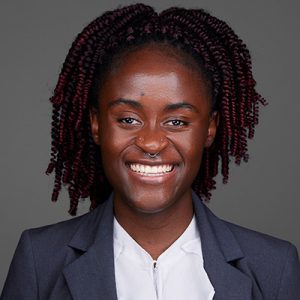
Palca Shibale, MD, a general surgery resident who is currently completing two years of dedicated academic development time, was announced as the recipient of the KARL STORZ Resident Research Scholar Award from the Society of University Surgeons (SUS). This one-year, $40,000 award is intended for residents in surgical disciplines who are conducting mentored research on either the impact of digital technology in the operating room or the use of artificial intelligence to improve clinical outcomes and operating room efficiency.
Shibale is interested in pursuing a career as a surgeon scientist involved in research on wound healing in patients who have experienced burn injuries. Working under the mentorship of Michael Longaker, MD, a plastic surgeon and the Deane P. and Louise Mitchell Professor at the Stanford University School of Medicine, her project will investigate a phenomenon called foreign body response, which is the body’s response to implanted biomaterials and medical devices.
“Implantable materials – such as pacemakers and continuous glucose monitors – have become an essential component of medicine and they often provide significant clinical benefit to patients,” explained Shibale. “However, because our immune system recognizes them as foreign materials in the body, it mounts an inflammatory response. This causes immune cells to gather around the implant, surrounding it with fibrous scar tissue.”
The scar tissue can cause the implanted material to malfunction, lead to chronic infection, or cause discomfort, which may then require surgical intervention; this can result in both significant clinical burden for the patient and economic burden to the healthcare system. Shibale’s goal is to better understand the biological factors that lead to a foreign body response, which could then help guide the development of new treatments to prevent or treat it. For her SUS-funded project, she plans to use machine learning methods to study how the foreign body response evolves over time, and how this response changes based on various interventions.
“The mechanisms of how wounds heal and how fibrous scar tissue develops are highly relevant for patients that have burn injuries, and better understanding these processes could ultimately contribute to the development of new anti-fibrotic therapies for the treatment of burns,” said Shibale. “I’m incredibly grateful to the SUS and the Longaker lab for their support as I acquire more experience in this field of research and pursue my long-term goal of running a translational lab focused on tissue and wound healing and regeneration.”